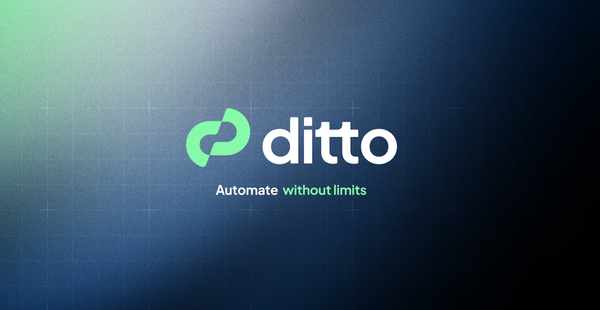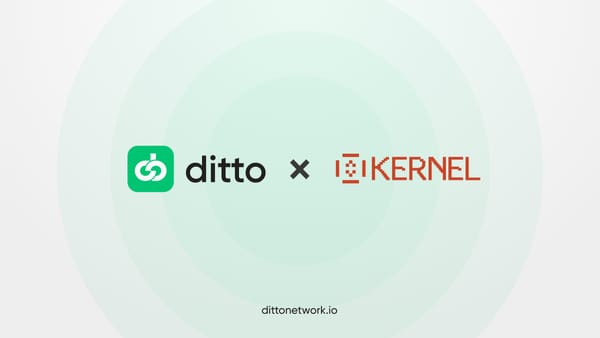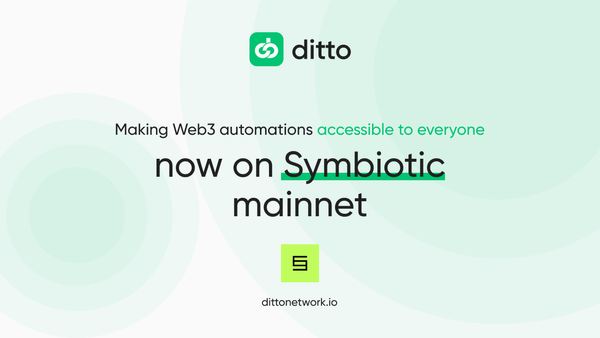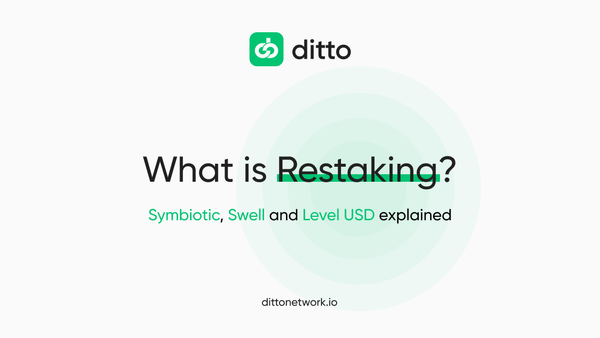What is a Keeper and Keeper Network in Blockchain?
In the blockchain ecosystem, keepers play a crucial role in ensuring the smooth execution of smart contracts.
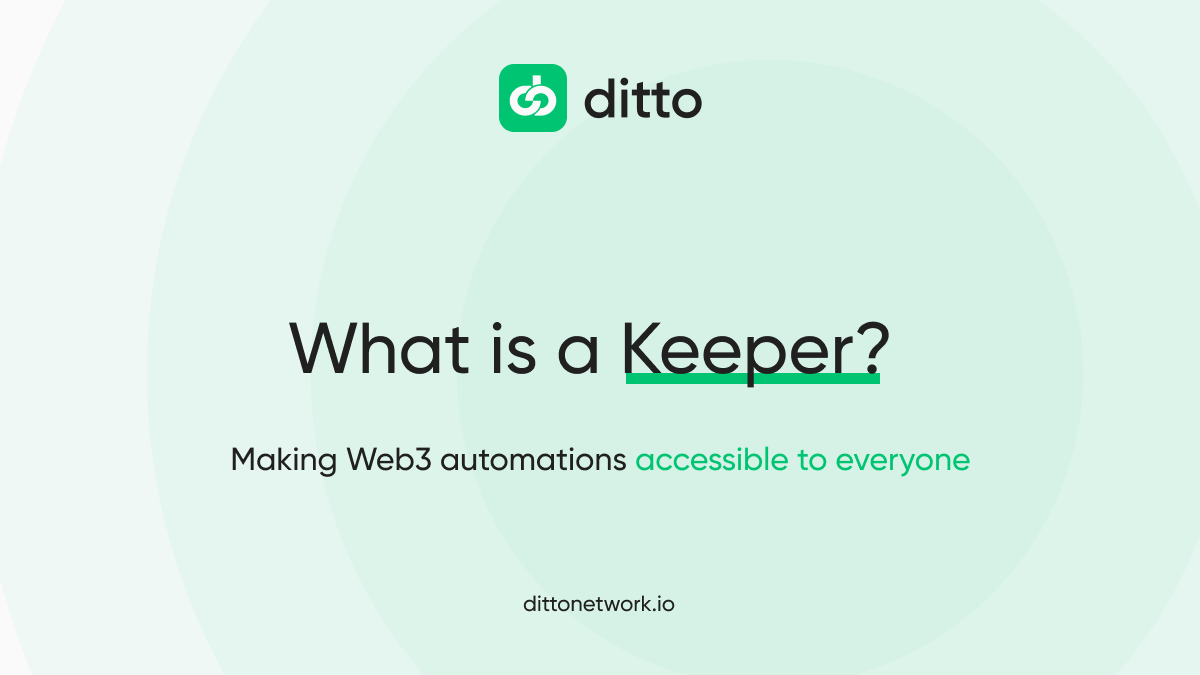
In the blockchain ecosystem, keepers play a crucial role in ensuring the smooth execution of smart contracts.
While smart contracts are self-executing agreements with their terms embedded directly in the code, they lack the ability to trigger themselves autonomously. This limitation necessitates an external entity to monitor the blockchain for specific conditions and trigger the contract’s execution when those conditions are met. This is precisely the function of a keeper.
Essentially, keepers are external actors or services that keep an eye on blockchain transactions and execute smart contracts when the predefined criteria are satisfied. They are vital to maintaining the automated, trustless nature of blockchain technology, particularly in decentralized finance (DeFi) applications.
Imagine you made a bet with your friend on who will win the Champions League this year, with the prize being a free vacation to Lisbon. At the end of the season, someone needs to check who won, then go through the hassle of buying the vacation tickets or sending the money to the winner. This is where keepers come in. Think of keepers as a trusted third friend who promises to stay impartial, verify the outcome, and ensure that both sides honor their commitments and the bet is executed fairly and automatically
What is a Keeper Network?
A keeper network is a decentralized network of keepers that work together to monitor and execute smart contracts across various blockchain protocols. In this network, multiple keepers collaborate to ensure that smart contracts are executed reliably and efficiently. Each keeper in the network has a specific role, such as checking the conditions required for contract execution, sending data, or triggering the execution itself. The decentralized nature of keeper networks prevents single points of failure and ensures that the blockchain system remains resilient, even if some keepers fail or act maliciously.
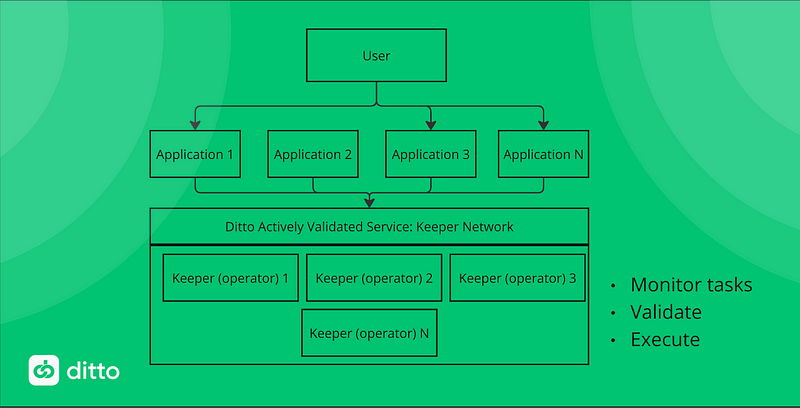
Keeper networks are integral to many blockchain applications, particularly in DeFi, where the timely execution of smart contracts can mean the difference between profit and loss. They help automate complex transactions, such as liquidations in lending protocols or rebalancing in automated market makers (AMMs), making the entire blockchain ecosystem more efficient and reliable.
In a keeper network, each “friend” (or keeper) has a specific role — one might verify the outcome of the Champions League, another might handle buying the vacation tickets, and yet another might ensure the money is transferred to the winner. Together, this network of keepers collaborates to ensure that every step of the bet is executed correctly, without the need for you or your friend to manage the details.
What is an Actively Validated Service (AVS)?
Actively Validated Services (AVS) are specialized services within the blockchain ecosystem that provide the necessary infrastructure to monitor, validate, and trigger the execution of smart contracts. AVSs ensure that the conditions for contract execution are met accurately and reliably, offering an additional layer of security and trust in decentralized applications. By working alongside keepers, AVSs help maintain the integrity and efficiency of blockchain operations, reducing the risk of errors or fraudulent activities. Thus, smart contract automation and building scalable decentralized applications becomes easier.
AVSs are particularly important in scenarios where smart contracts require continuous monitoring of external data or complex condition validation before execution. In such cases, AVS operator provides the computational power and validation needed to confirm that the conditions have been met, enabling keepers to execute the contracts as intended. Ditto Network is an AVS in the EigenLayer ecosystem. Thanks to EigenLayer integration, we leverage the security of Ethereum.
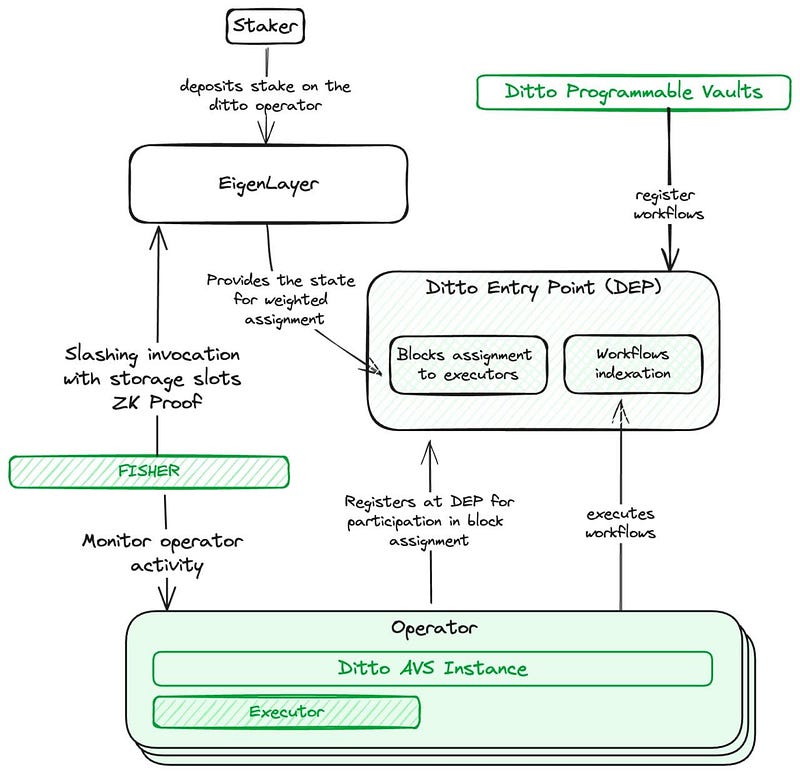
Imagine you and your friends place bets on every Champions League game or every season, year after year. For this system to work smoothly, you need to trust that all your friends will keep their promises and handle their roles reliably. This is where an Actively Validated Service (AVS) comes in.
Think of the AVS as a watchdog that constantly monitors the performance of your friends in these bets. It checks if everyone is doing their job correctly — whether it’s verifying match results, buying vacation tickets, or transferring money. If one friend doesn’t perform well or fails to keep their promise, the AVS operator identifies the issue and allows you to replace them with a more reliable friend for the next round of bets.
Why Ditto Network is Important?
The Ditto Network is an essential player in the realm of keepers and AVSs, offering a comprehensive solution for decentralized automation in the blockchain space. By integrating with both keepers and Actively Validated Services, Ditto Network ensures that smart contracts are executed securely, efficiently, and without the need for constant manual oversight.
What sets Ditto apart is its incorporation of objective slashing and economic guarantees of execution. This means that if any entity within the network fails to perform as expected, Ditto’s automated objective-slashing mechanism enforces penalties, maintaining the integrity of the network. Additionally, the economic guarantee of execution ensures that all smart contracts are carried out as promised, backed by financial security, making Ditto a reliable and robust choice for developers and users alike.
Ditto Network’s importance lies in its ability to streamline and automate complex blockchain processes, making it easier for developers to create scalable and reliable decentralized applications. With Ditto, developers can focus on building innovative solutions, confident that their smart contracts will be executed correctly and on time, thanks to the robust infrastructure provided by Ditto’s integration with keeper networks and AVSs.
In normal AVSs, if your friends did not do their job well, you would take a bet to punish/eliminate them. Ditto goes a step further by incorporating objective slashing and economic guarantees of execution. This means that if a keeper (one of your friends) doesn’t keep their promise or acts unfairly, Ditto’s automated objective slashing mechanism ensures that they face consequences. This approach guarantees that the execution of the bet, or any blockchain transaction, is carried out as planned, with financial security backing it up. In other words, Ditto not only monitors but also enforces fairness and reliability, ensuring that your bets — or in blockchain terms, your smart contracts — are executed correctly every time.
In summary, keepers and keeper networks are vital components of the blockchain ecosystem, ensuring that smart contracts function as intended. When combined with Actively Validated Services like those provided by Ditto Network, these technologies create a secure, automated, and efficient environment for decentralized applications to thrive. This synergy between keepers, AVSs, and networks like Ditto is what powers the next generation of blockchain innovation, driving the future of DeFi and beyond. And shared security, through EigenLayer integration makes everything easier.
About Ditto Network
Ditto Network is a trustless actively validated keeper network (AVS) that runs event-driven workflows with economic guarantees of execution, leveraging shared security. In addition, Ditto offers various intent-centric automation modules and SDKs for founders and developers, introducing the future of embedded finance solutions in Web3.
The team is comprised of experienced web3 developers and professionals with backgrounds and previous exits in web3 from McKinsey, Uniswap, Nil Foundation, TrustWallet, NEAR, 3Commas, and PE/VC.
Website | X | Discord | Book a Call to Integrate Ditto to Your Project

